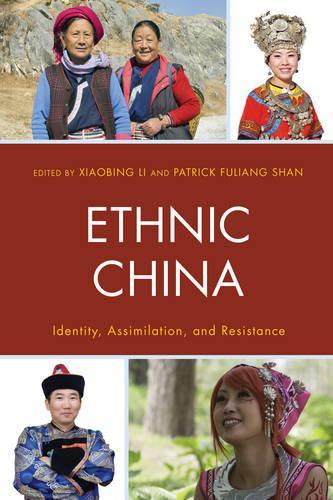
Ethnic China: Identity, Assimilation, and Resistance
(Paperback)
Available Formats
Publishing Details
Ethnic China: Identity, Assimilation, and Resistance
By (Author) Xiaobing Li
Edited by Patrick Fuliang Shan
Contributions by Lu Cao
Contributions by Qiang Fang
Contributions by Zhaohui Hong
Contributions by Ting Jiang
Contributions by Jieli Li
Contributions by Xiaobing Li
Contributions by Xiaoxiao Li
Contributions by Xiaoyuan Liu
Bloomsbury Publishing PLC
Lexington Books
20th July 2017
United States
Classifications
Professional and Scholarly
Non Fiction
Social and cultural anthropology
Asian history
305.800951
Physical Properties
Paperback
318
Width 151mm, Height 251mm, Spine 23mm
481g
Description
There are some serious concerns and critical questions about the on-going minority protesting in China, such as Tibetan monks self-immolations, Muslims suicide bombings, and Uyghur large-scale demonstrations. Why are minorities such as the Uyghur dissatisfied, when China is rising as a world power What kind of struggle must they go through to maintain their identity, heritage, and rights How does the government deal with this ethnic dissatisfaction and minority riots And what is ethnic Chinas future in the 21st century Ethnic China examines these issues from the perspective of Chinese-American scholars from fields such as economics, political science, criminal justice, law, anthropology, sociology, and education. The contributors introduce and explore the theory and practice of policy patterns, political systems, and social institutions by identifying key issues in Chinese government, society, and ethnic community contained within the larger framework of the international sphere.Their endeavors move beyond the existing scholarship and seek to spark new debates and proposed solutions while reflecting on established schools of history, religion, linguistics, and gender studies.
Reviews
Although ethnic politics is not the Achilles heel of the People's Republic of China as it was for the former Soviet Union, it is an important and multifaceted set of issues that necessarily command the attention of China's leaders. Ethnic China presents a dozen well-crafted, thought-provoking, and well-balanced chapters by Chinese American scholars on a broad range of issues relating to ethnicity. They reveal a gap between rosy official depictions of a harmonious, ethnically well-integrated society and a rather grimmer reality in which rapid economic development is not a panacea for all the problems that exist in the multi-ethnic society of contemporary China. -- Steven I. Levine, University of Montana
As the authors grapple with a range of challenging issues, they offer valuable perspectives on some of the most difficult questions facing both Chinas Communist Party leaders and Americans responsible for the formulation of human rights policies toward China. The authors, all Chinese scholars working in American colleges and universities, offer unique insights as they grapple with sensitive questions relating to Chinese national identity, political unity, and human rights. These thought-provoking studies of historical and contemporary issues of ethnic identity and politics in China will challenge both Chinese and American readers to question their assumptions about issues ranging from Tibet and Xinjiang to the foundations and efficacy of American human rights policies toward China. -- Harold M. Tanner, University of North Texas
Author Bio
Xiaobing Li is professor and chair of the Department of History and Geography and director of the Western Pacific Institute at the University of Central Oklahoma. Patrick F. Shan is associate professor of history at Grand Valley State University.
